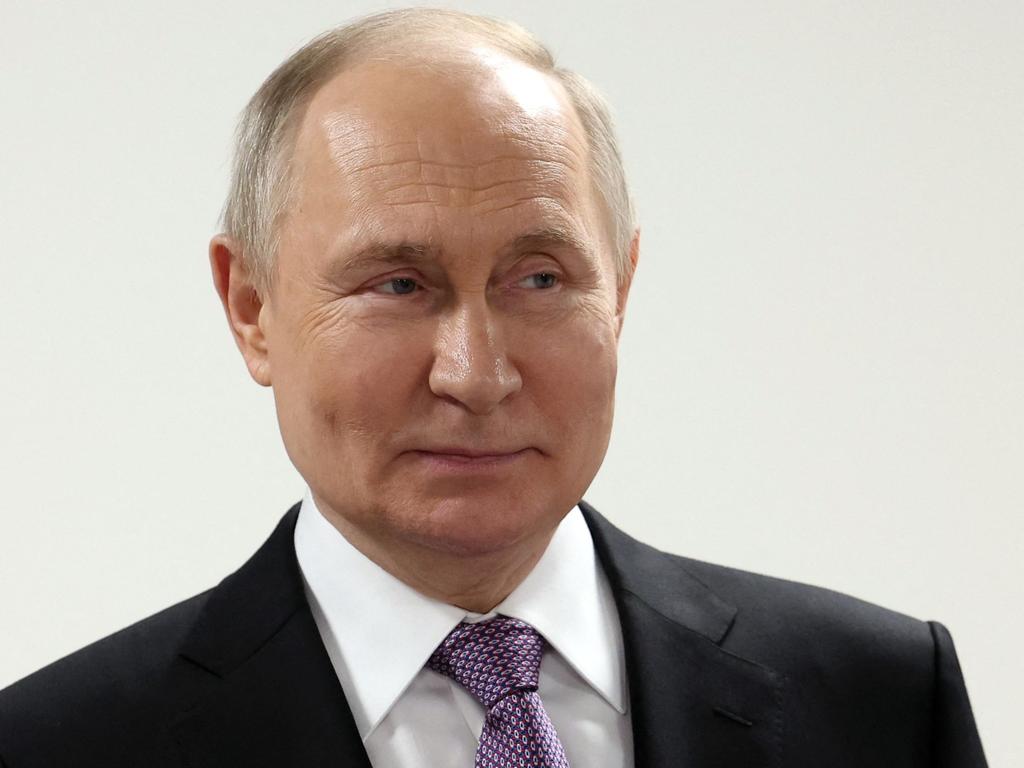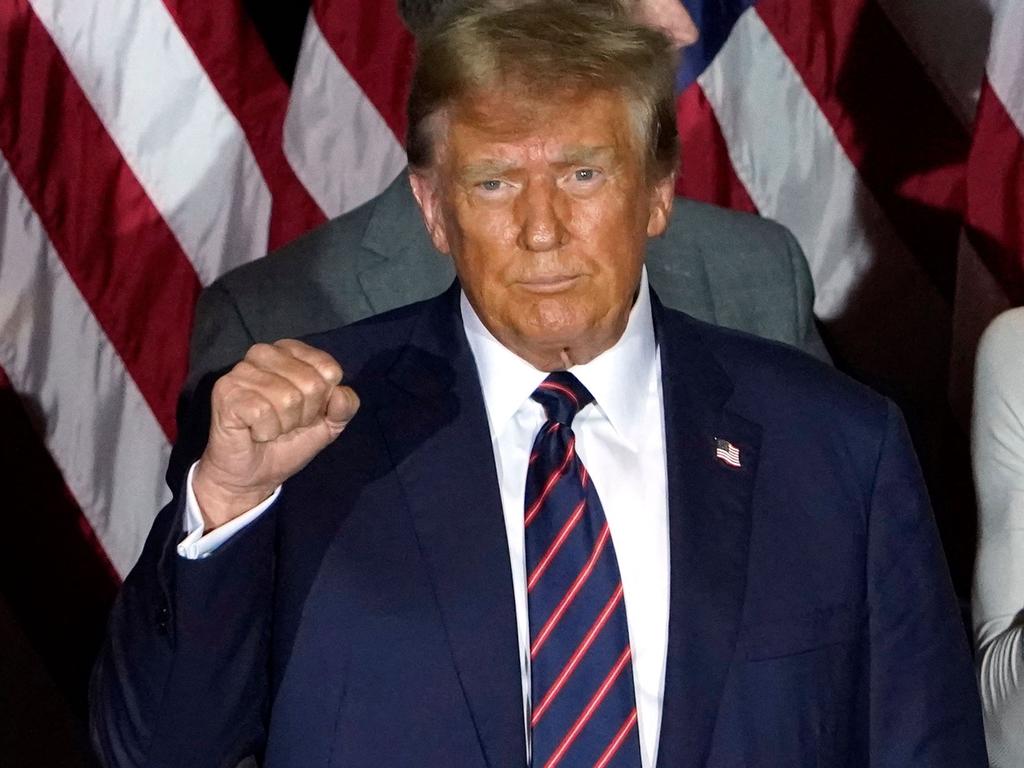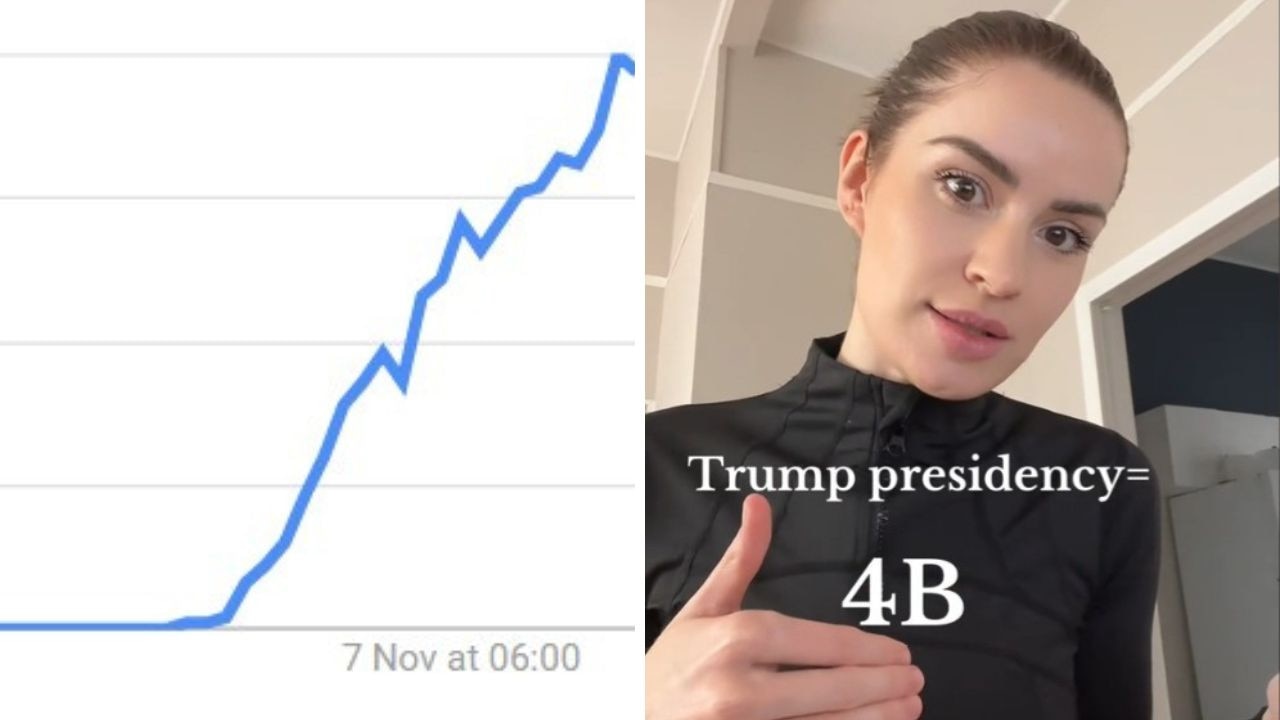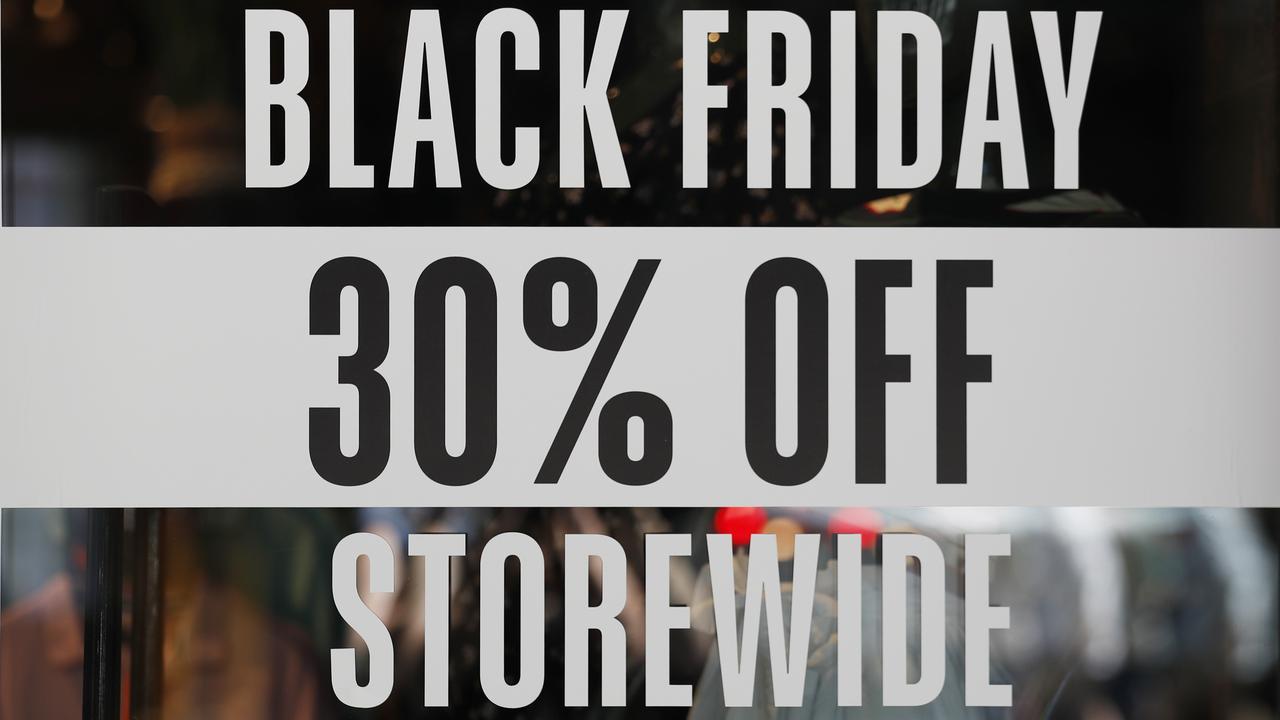US ‘Texit’ war threat being stoked by Russia
A US state is being hyped up by Russian interference and is threatening “a war” over a Mexican “invasion”.

Internet
Don't miss out on the headlines from Internet. Followed categories will be added to My News.
ANALYSIS
Russia’s expert social media manipulation teams are eagerly pouring fuel on a US political fire that has its roots in the Civil War of 1861. And the Kremlin’s state-run media is having a field day.
“Establishing a People’s Republic of Texas is getting more and more real,” deputy chairman of Russia’s Security Council, Dmitry Medvedev. His words spearheaded a barrage of industrial-strength propaganda unleashed on Elon Musk’s “X” (formerly Twitter), hyping the threat of “a bloody civil war which cost thousands upon thousands of lives.”
Establishing a People's Republic of Texas is getting more and more real; something I wrote about at the end of 2022 in a jocular forecast.
— Dmitry Medvedev (@MedvedevRussiaE) January 26, 2024
The American Administration shows its total inability to cope with the migration crisis which has broken out in one of the largest US…
Texas Republican Governor Greg Abbott wants to take control of the border with Mexico.
After the reported drowning death of a woman and two children during an attempt to cross the Rio Grande River, the Governor ordered his National Guard to seal off the scene with razor wire – preventing Federal Agents from investigating.
But, constitutionally, international borders are the responsibility of the Union.
This was recently upheld by the US Supreme Court.
Governor Abbott, however, has since doubled down on what he claims is his right to mobilise his forces to defend his state from “invasion”. Other Republican state Governors have moved to back him, sparking an intense partisan-political spat nationwide.

Not all of the hype is Russian.
US politicians are themselves eager to sow division within their own country.
At the weekend, South Dakota Governor Kristi Noem added her voice to threats of civil war.
“If he’s (President Joe Biden) willing to do that and take away my authority as governor as commander-in-chief of those National Guard, boy, we do have a war on our hands,” Noem proclaimed.
Red star rising
Co-ordinated efforts by Russian and US partisan-political groups to push the civil war narrative have produced tangible results.
“There’s a big convoy of truck drivers going down there. So, it can very easily get out of hand. It can genuinely lead to an actual civil war, where the US Army is fighting against US citizens,” a correspondent for Russia’s state-controlled Sputnik online service posted to X.
Texas border showdown could escalate into national uprising
— Sputnik (@SputnikInt) January 28, 2024
Sputnik correspondent Russell Bentley explained that Texas has become the epicenter of an American national resistance movement.
“There’s people from all over the United States. Not just state governments, but also… pic.twitter.com/j3ZU4pRe8r
The “Gods Army” convoy – also dubbed the “Take Our Border Back” convoy – has crossed the United States from Virginia and converged on Texas.
The loose amalgamation of white Christian nationalists, far-right activists, sovereign citizen advocates, QAnon adherents and a wide array of conspiracy theorists share one thing – a deep engagement in social media platforms.
Some “Gods Army” members have themselves called out Russian infiltrators within official social media channels. “They want a civil war/chaos more than anything. What’s bad for America is great for Russia,” one post warned.
Others insist Russia’s merely offering support for their “moral crusade”.
But pro and counter-protesters assemble everywhere the convoy goes – motivated mainly through social media.

“This tactic — amplifying extremes on both sides of a divisive issue — comes straight out of Russia’s disinformation playbook and was used extensively during the 2016 election interference campaign,” adds Orr. “Russia even organised duelling rallies in Texas that were meant to divide the American public, according to evidence uncovered during the investigation into Russian interference.
Heralds of chaos
Kremlin politician Sergey Mironov has offered Texas formal Russian aid: “If necessary, we are ready to help with the independence referendum. And of course, we will recognise the People’s Republic of Texas if there is one,” he wrote on X.
“In the conflict between Texas and the United States, I am on the side of the state. If necessary, we are ready to help with the independence referendum. And, of course, we will recognise the People’s Republic of Texas if there is one. Good luck! We’re with you!”
Such state-generated messaging quickly propagates across social media feeds, seizing on the same talking points and often using the exact same phrasing.
Not much effort is put into subtlety. Or refinement.
It’s more important to generate trending hashtags – the propagandists know few will read content beyond the headlines.
Biggest US related news on China’s internet for the past few days is Texas governor declaring war with the federal government, which did not happen in reality. There is even a designated hashtag for it on Weibo. Netizens are cheering for what they call America’s self destruction. pic.twitter.com/e164Pc75YQ
— Wenhao (@ThisIsWenhao) January 29, 2024
The National Review called out one such obvious fumble.
One online “Texit” (a rebrand of Britain’s infamous “Brexit” movement that led it to abandon the European Union) advocate was arguing the Lone Star State had what it took to go it alone.
“(We have the) 8th largest economy now. 50th by population in the world. A warm water port, oil / natural gas and major tech industries. Our own power grid and military as well?”
This caught the attention of National Review writer Jim Geraghty
“Say, when’s the last time you heard a Texan refer to a warm-water port? This is the United States of America, pal. Other than a couple in Alaska, all our ports are warm-water ports.
“You know who spends a lot of time thinking about warm-water ports, because they have so few of them? Russians.”
But the entire “Free Texas” movement appears suspect.
“This phrase and associated hashtag were used extensively, and nearly exclusively, by Russian accounts associated with the notorious Internet Research Agency,” says Orr, referring to the groundbreaking manipulation factory created by assassinated Putin crony Yevgeny Prigozhin.
Industrial strength propaganda
“In 2016, Americans were influenced by a few fake online individuals; in less than a decade, this threat has transformed into entirely fabricated networks, systems, and organisations,” warns the Brooking Institution Lawfare group.

The upshot is many social media posts advocating a Texas insurrection and civil war are again attracting hundreds – if not thousands – of likes and reposts from Russian troll farms and bot factories to dramatically raise their profile. That’s on top of those generated by their own political sponsors.
Researchers believe that social media algorithms ravenously promote controversial posts in the pursuit of more clicks (and therefore garner extra advertising revenue).
“This is part of Russia’s hybrid warfare strategy, which seeks to undermine and destabilise democratic processes through a variety of means, including and especially information warfare,” says University of Maryland behavioural scientist Caroline Orr.
During Vladimir Solovyov's show, propagandists admitted that many in Russia are hoping for a civil war in America — and Donald Fredovych Trump is their best bet at making it happen. https://t.co/ieXn6dRYEx
— Julia Davis (@JuliaDavisNews) January 9, 2024
Social media mechanics are gamed to build up a mass of false narratives and hysteria, blending commentary chatbots, foreign agents and local “influencers” into what – at first glance – appears to be an honest discussion.
This then spills over into other social media threads, where it is often taken at face value.
It’s a tactic pioneered by Russia in the early days of Twitter and Facebook.
It’s long since been adopted by marketing agencies, political parties and profit-driven content creators willing to “sell” any story that generates reader engagement.
“The incessant spread of misinformation corrodes the very foundation of our shared reality, undermining our ability to make informed decisions and to engage in constructive discourse,” warns University of Sydney Professor Uri Gai.
“The challenge is not merely for individual users; it is a societal issue that warrants a collective response similar in scope and urgency to that required by other public policy issues, such as gambling or alcohol use.”
War of the words
“Millions of Americans are up in arms over what they perceive as a lack of security at our physical border with Mexico, yet few people seem concerned about the complete lack of security along our virtual borders,” says Orr.
But many attempts to expose both the deliberate manipulation and vulnerability of social media mechanics have failed.
US Congressional inquiries are being held into university and research groups that have attempted to understand how social media algorithms work – including how children can be led to extremist content within hours of first signing up. They face allegations ranging from “defamation” through to breaching “proprietary intellectual property rights”.
Government bodies established to assess the threat of industrialised lies have themselves been targeted with “censorship” disinformation campaigns, causing them to be shut down.
Social media megacorporations have all but abandoned measures introduced to combat deliberate attempts to deceive their communities after the 2016 US election fiasco. They’ve fired moderators, dismissed risk assessment teams and are once again cashing in on the return of demonstrably false paid political attack advertisements.
And the next round of US Presidential elections are just months away.
Which is why security analysts are paying so much attention to what’s been happening in Texas.
“With the 2024 election just around the corner, these findings are an alarming reminder that Russia never stopped interfering in domestic politics in the US and continues to try to use homegrown protest movements and societal flashpoints as an opportunity to exacerbate social divides and sow discord as part of its asymmetric assault on western democracies,” concludes Orr.
More Coverage
Originally published as US ‘Texit’ war threat being stoked by Russia









